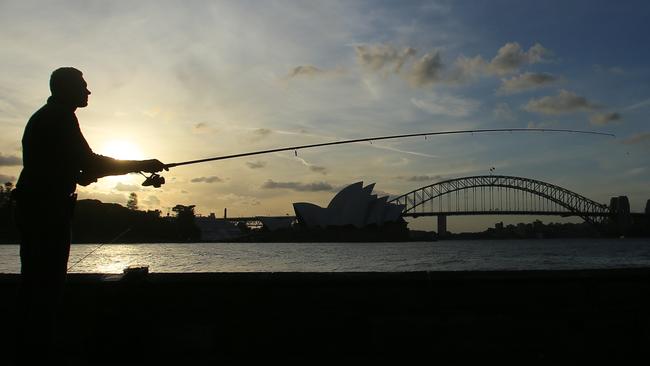Recreational fishing exempt from COVID-19 restrictions, must maintain social distancing
NSW Police Minister David Elliott has saved recreational fishing from COVID-19 restrictions after Transport for NSW tried to declare “boating and fishing are not considered an essential activity”.
NSW
Don't miss out on the headlines from NSW. Followed categories will be added to My News.
Police Minister David Elliott had to personally intervene to save recreational fishing in NSW even as the government’s own department for transport was drafting a statement banning it.
The Daily Telegraph has obtained a draft Transport for NSW media release on official government letterhead which is entitled “recreational boating not a reasonable excuse as NSW community reminded to stay at home”.
“Recreational boating and fishing are not considered an essential activity or reasonable excuse under these new directives,” the release stated.
When Police Minister David Elliott became aware of the intention to issue the release he was outraged and obtained legal advice that he could save fishing.
“Police General Counsel advise me that recreational fishing is deemed passive exercise and therefore technically exempt,” Mr Elliott said in a statement.
READ MORE
Get The Daily Telegraph free for 28 days
COVID-19 hibernation: The ultimate guide to daily life

Mr Elliott also noted that many people fish for food, particularly in the current difficult jobs climate. He said it was critical to regional communities, but urged people to maintain social distancing while doing it.
Transport Minister Andrew Constance, whose department was drafting the public statement that fishing was banned, said he was glad Mr Elliott intervened and that he was not aware of the media release.
Mr Constance said the statement from his department would not have been publicly issued until fully approved.
“I’m pleased David Elliott has cleared this up – we must be guided by him. I’m also pleased that we are saving fishing. It feeds people and it’s important mentally, particularly in bush communities.”
